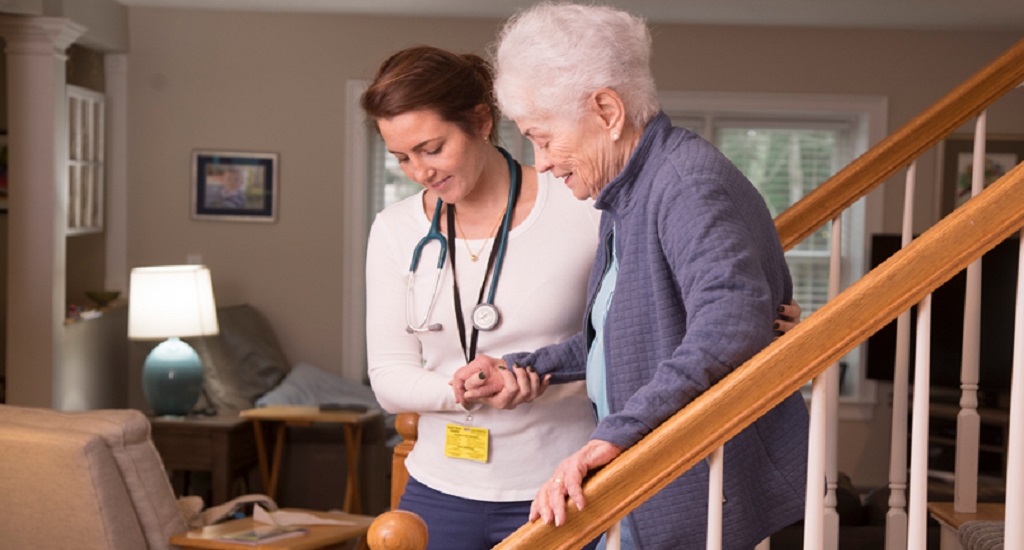
28 Jan 10 Tips to take care of an elderly person at home
The provision of care is not carried out exclusively in the home environment but extends to different public and private institutions, however, family care is one of the scenarios where it is most visible and common.
Undoubtedly, caring for another represents a great challenge that only with teamwork and with the full awareness that a single person cannot solve everything, better conditions can be built for both caregivers and dependents. Here are 10 tips for caring for an elderly person at home.
-
Carry out a needs assessment
You must start from reality, you have to list what the needs of your family member are, as well as the resources available to face them. Once what is needed has been established, a realistic action plan will be drawn up of what each family member can contribute, as well as looking for the means and people to facilitate the process.
-
Make family agreements
When your family member begins to become dependent, it is necessary to reach family agreements regarding the responsibilities that each child will take on. Disagreements and friction are common, the recommendation is to establish a family meeting to openly discuss the expectations, possibilities, and responsibilities that each of the members must meet with the objective of strengthening family ties.
If it is difficult to reach these agreements, we recommend you go to a professional who can guide you to make the process of adaptation and change in family dynamics positive and constructive.
-
Assemble a good team of professionals to support
Generally, an elderly person presents various pathologies, the most advisable thing is to have a Geriatrician who can guide them as a family in the care and treatment of their relative.
If you require personalized assistance and support to carry out activities of daily living, consider the option of hiring an assistance service for the elderly in your home, in case you require advanced medical care contact a nursing service.
-
Establish a daily routine for your family member
It is advisable to have a schedule for each activity during the day, from breakfast, personal hygiene, recreational and social activities, among others, so that our family member gets used to doing them without problems. Having a structured routine helps to keep their activities in order, making our family members feel safe in addition to promoting the person to keep their sleep and wake schedules; and be always physically and mentally active.
-
Establish a safety plan
In an elderly person, the risks of accidents are increased as their senses begin to diminish, we recommend making a list of some risk factors and taking actions in this regard.
One of the dangers older adults continually face is falling. To prevent this from happening, you need to make a review of the living space of your family member and remove obstacles, rugs, fragile tables where he can trip. Modifications must also be made in certain critical areas such as the bathroom, where support bars must be installed and slip-resistant mats must be installed. It is essential to have good lighting and free spaces to be able to circulate easily.
If your family member has cognitive impairment, you should anticipate that he may leave the home and get lost in the surroundings, for this we recommend keeping the door locked and providing him with identification that he can wear all day.
-
Keep a record of medications
It is common for the elderly to consume several medications and may become confused and double their dose, on the other hand, there is a tendency towards self-medication, this is very dangerous and, therefore, it is necessary for you, as a family member, to take control of the situation. We recommend that you keep the daily control of each medication in a notebook or log and use controlled pillboxes.
-
Establish an eating plan
In advanced age, there is a tendency to consume less food since it is of only one type. Eating a balanced diet is recommended to prevent any health problems in addition to helping your family member to become physically and mentally strong.
-
Help him stay physically and cognitively active
Immobility and memory disorders must be prevented. We can promote activity with a simple daily walk, hobbies, or activities within the home that motivate your family member to continue an active and healthy life.
Memory tends to decline with age that is why we must help them to have tools to stimulate their mind such as puzzles, riddles, word searches, crossword puzzles, among others. Let us always be aware that they can learn new things every day.
-
Help him stay socially connected
It is important to promote socialization with our family members and allow interaction not only with family but with close circles of friends. This will help them continue to live a quality life and give them the opportunity to set new goals, new interests, and lifestyles in order to feel more fulfilled.
-
Provide affection, attention, and details
At the end of the day, the most important thing is the affection and love that we can give our family members. Perhaps there will be material needs that are difficult to meet, but the time, the details, and the affection that we give them every day will make them feel happy and loved no matter the conditions in which they are.



Sorry, the comment form is closed at this time.